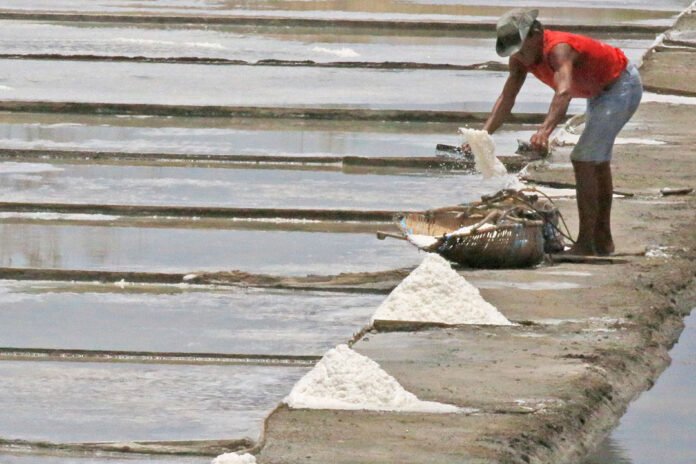The Philippine Salt Industry Development Act, or Republic Act No. 11985, was recently approved by President Marcos. With this action, the government hopes to revitalize a sector that has been neglected for a long time and is currently in decline.
This rule was pushed for implementation in 2022 by lawmakers because of the nation’s excessive reliance on imported salt—which supplies more than 90% of its salt needs. Considering that the country has more than 36,000 kilometers of coastline, this issue is especially concerning.
One of the law’s supporters, Senate Majority Leader Joel Villanueva, stressed the necessity of using the nation’s extensive coastline for salt manufacturing and generating jobs throughout the islands. He displayed data indicating a notable rise in salt imports over time from nations such as Australia and China.
A comprehensive plan for government support of salt development, research, processing, and commercialization is outlined in Republic Act 11985. It requires different organizations to support salt producers with technology, research, funding, manufacturing, marketing, and other crucial services.
The new law’s main objectives are to increase salt production domestically, attain self-sufficiency, and even look into potential salt exporter. Cheloy Velicaria-Garafil, the presidential communications secretary, expressed hope for the salt industry’s future under this legislation.
To guarantee coordinated efforts in putting the salt industry plan into action, a key component of RA 11985 is the establishment of the Philippine Salt Industry Development Council, which would be presided over by the agricultural secretary. This council will be crucial to the modernization and industrialization of the industry since it represents farmers’ cooperatives from Mindanao, Visayas, and Luzon.
The bill’s principal proponent, Senator Cynthia Villar, expressed her satisfaction with its passage, predicting a revival of the salt business and better living conditions for all parties involved. She outlined how the law allows for the growth of salt farms, the leasing of public lands for the production of salt, and the use of import taxes to finance the creation of new industries and the improvement of competitiveness.
The rule also deals with salt iodization requirements, allowing non-food and artisanal salt to be optional while guaranteeing compliance for food-grade salt meant for human consumption. By taking a deliberate approach, public health concerns and industry sustainability are intended to be balanced.





